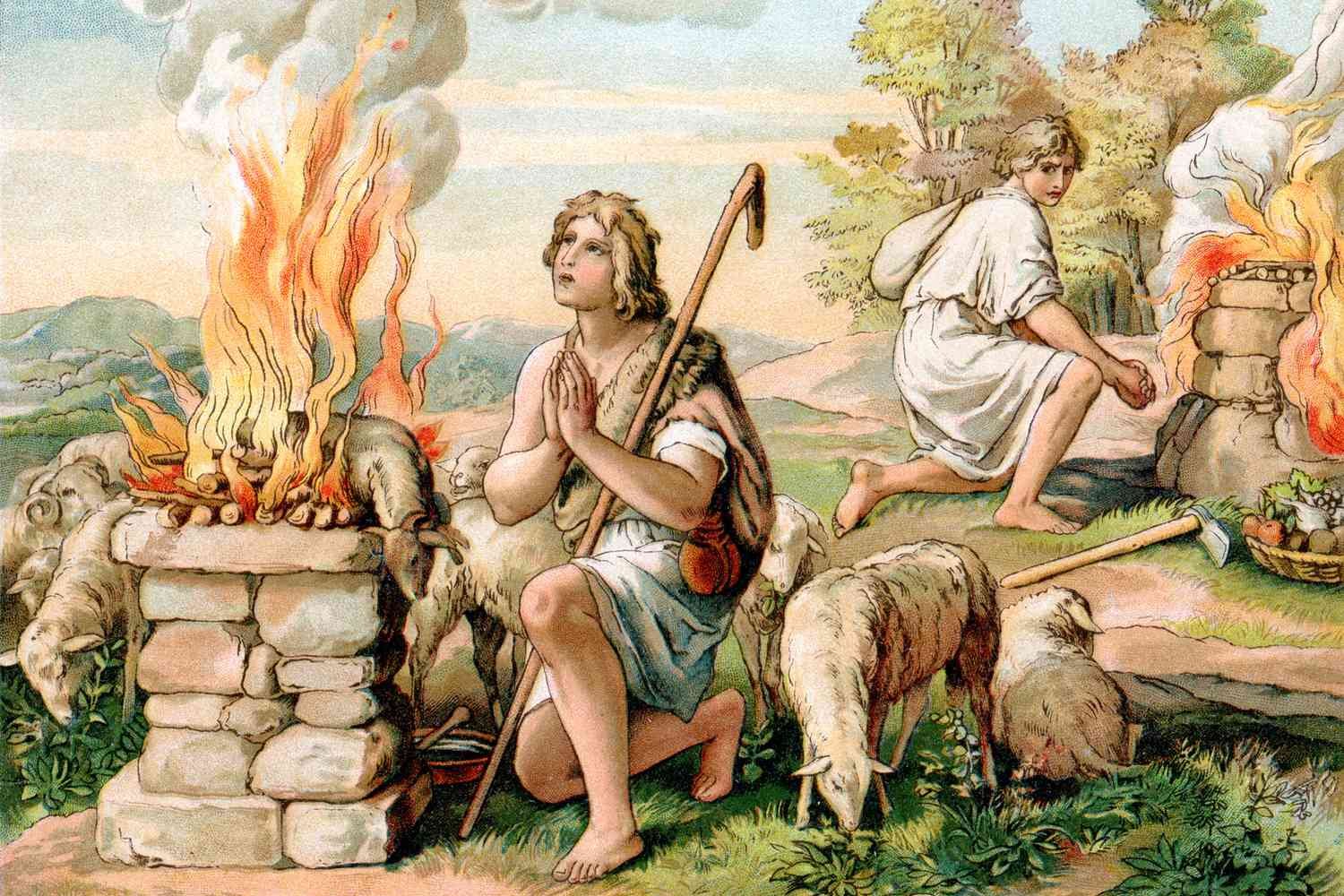The First Murderer: Cain in Ancient Scripture and Apocryphal Perspective
From the moment Cain struck down his brother Abel, humanity was forced to confront its darkest shadow—murder. Found in the fourth chapter of Genesis, this pivotal act not only marks the first recorded homicide but also initiates the long biblical exploration of sin, justice, and divine consequence. But what if the story runs deeper than the traditional Sunday school lesson? What if ancient and apocryphal texts paint a far more complex picture of Cain—the first murderer?
In the canonical Bible, Cain, the son of Adam and Eve, is a tiller of the soil and he offers the fruits of his labor in a grand sacrifice. When his offering is rejected in favor of Abel’s, Cain’s anger festers. God warns him that sin lies at his door, but Cain ignores the divine warning. He invites Abel to the field and murders him in cold blood. When confronted, Cain retorts, “Am I my brother’s keeper?” (Genesis 4:9). As punishment, God marks Cain and exiles him, yet also protects him from revenge, a paradox of mercy and justice.
Cain’s exile is more than a punishment—it’s the beginning of human estrangement. Banished to the land of Nod, east of Eden, Cain becomes a wanderer, detached not only from his family but from the spiritual center of creation. His exile embodies the consequences of unrepented sin and foreshadows the pattern of wandering humanity—displaced yet preserved.
At its heart, the story is also a tale of sibling rivalry. Cain and Abel are not merely individuals—they represent competing archetypes: the cultivator and the shepherd, the elder and the favored, the human striving and the divine preference. Their conflict reveals how familial jealousy, unchecked, can rupture the sacred bonds of kinship. The rivalry is more than emotional; it’s symbolic of the emerging divide in human society, between spiritual priorities and worldly pursuits.

This account portrays Cain as driven by envy and rage—a symbol of unchecked emotion and fractured relationship with God. But outside the canonical text, Cain’s story takes on surprising nuances.
In The Book of Jubilees, an apocryphal retelling of Genesis popular among early Jewish sects, Cain’s crime becomes more than jealousy—it’s tied to priestly roles and sacrificial hierarchy. Some traditions suggest that Abel’s offering was accepted because he followed a heavenly pattern of worship, while Cain, stubborn or ignorant, brought an unworthy gift. This suggests the first murder may have roots in improper spiritual leadership and rebellion against divine order.
The Book of Adam and Eve, another apocryphal work, goes even deeper. This text portrays a grieving Eve recounting the death of Abel, placing emphasis on the heartbreak and spiritual loss rather than legal justice. It humanizes Cain—not to excuse him, but to frame his act as one ripple in the larger tragedy of Edenic fall.
Some Gnostic texts, such as those in the Nag Hammadi Library, even attempt to invert the story. They explore a dualistic worldview where Cain’s actions might be seen through a cosmic lens of spiritual conflict, suggesting that Abel belonged to the demiurgic realm of ignorance, and Cain’s deed was part of a divine unfolding. Though these views were later deemed heretical, they show how early communities wrestled with moral ambiguity.
Modern interpretations of Genesis allow for yet another perspective: that the story is not just about guilt and punishment, but about the birth of conscience. Cain’s internal dialogue, God’s rhetorical questions, and the land’s reaction to spilled blood all reflect a deeper moral framework emerging. Genesis may not be condemning Cain as a monster, but rather spotlighting the human condition as one fraught with choice, consequence, and longing for reconciliation.
Whether viewed as a jealous brother, a failed priest, or a pawn in a cosmic war, Cain’s legacy looms large. His act is not just about bloodshed—it’s about broken communion: between humans, between God and man, and between the earth and its stewards. When God tells Cain, “Your brother’s blood cries out to me from the ground,” the soil becomes a witness, setting a precedent for justice and retribution that echoes throughout the rest of scripture.
The apocryphal and ancient traditions challenge us to go beyond the black-and-white morality tale. They ask: Was Cain’s path inevitable? Was his mark a curse or a strange kind of grace? And perhaps most provocatively—could there be Cain in all of us?
Is Cain more than an ordinary villain? He remains one of the Bible’s most enigmatic figures. Through both ancient scripture and apocryphal texts, we gain a deeper, sometimes darker, always more complex understanding of what it means to fall so far from grace. The first murder was not just a singular event—it was the birth of moral choice, consequence, and the long human struggle to reconcile justice with mercy.
In exploring Cain, we are not just retelling the story of a killer—we are uncovering the shadowy origins of human morality itself.

